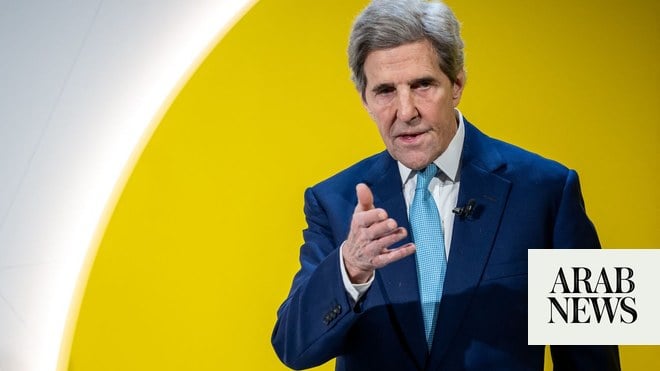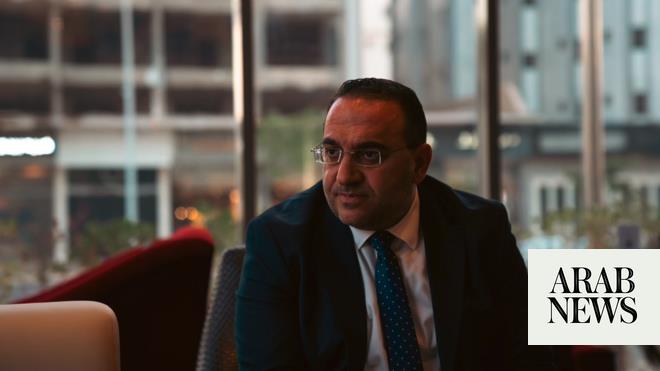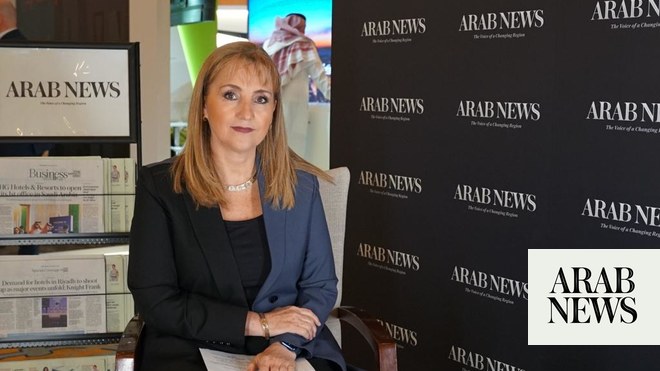
JEDDAH: Saudis who take part in cultural and educational exchange programs in the US act as “little ambassadors” who help Americans learn about the Kingdom’s culture and history, according to Ryan M. Gliha, the new US consul general in Jeddah.
The diplomat, who took up his post in September, spoke to Arab News on the sidelines of the 5th Annual Alumni Conference organized by the US Mission in Saudi Arabia. The three-day event was held at the Jeddah Youth Hub at the weekend, with Saudi graduates of US schools, colleges, universities and visitor programs taking part in interactive sessions, discussions and workshops.
Cultural exchanges are one of the most important aspects of a diplomatic mission’s role, Gliha said.
“With Saudi Arabia, we have been doing cultural exchanges for over 70 years in a variety of different ways. Students, professionals and government officials travel back and forth,” he told Arab News. “Cultural and educational exchanges allow people to draw closer to each other.”
Gliha said that most Americans lack passports and never travel outside the country, so Saudis taking part in exchange programs are key to helping American citizens learn about the country.
“The only way Americans are going to become more knowledgeable about Saudi Arabia and its culture is by people from this country going to the US. When we get participants to travel to the US, they become little ambassadors for Saudi Arabia,” he said.
“And, from their experiences, they educate my countrymen about their lives, history and culture. They also absorb what is great about the US and have their own experiences and learn from our people. They then come back to Saudi Arabia and become little ambassadors for the US.
“Sharing their experiences with their loved ones, co-workers and friends at this conference is our chance to reconnect and find ways to cooperate and give them opportunities.”
Gliha began his diplomatic career at the US consulate in Jeddah, working as head of the visa unit from October 2002 to November 2004, and still admires the city’s vibrant culture.
“There are certain things that don’t change — like the weather. But, beyond that, there are things that do change. It is amazing to come back,” he said.
“Jeddah was always vibrant, but it is growing so much; it is twice the size it was when I left. All the construction and all the activities happening here — and you see places like the Jeddah Youth Hub and which is a fantastic space for people to collaborate. It is really exciting to see.”
Jeffrey Willey, cultural affairs officer at the US Consulate, helped participants at the conference as they made their way to the programs and events. He explained how exchange programs are also hugely beneficial for participants.
“We have a number of exchange programs where we select promising young Saudis and give them the chance to go to the US for two to three weeks and learn about a certain field. It might be entrepreneurship, diplomacy or journalism programs like the International Visitor Leadership Program,” he said.
“What it does is give them an opportunity — usually for folks who haven’t had a chance to travel to the US — to go there and meet senior officials in certain fields. They have a chance to see how different types of businesses are run and, hopefully, when they come back to Saudi Arabia, they can try those practices here. After all, they are well suited to know what works best here in Saudi Arabia.”
Willey praised Dr. Shadi Fouad Khawandanah, chairman of the Special Direction business consultancy house, for playing a key role at the event, which attracted about 125 alumni from Jeddah, Riyadh and Dhahran.
He said that this year’s conference was more interactive than previous editions, with Saudi speakers involved and more hands-on workshops, including one on time management conducted by Othman Suhaim, a senior executive at PetroRabigh and a beneficiary of the International Visitor Leadership Program.
The workshop featured an amusing, but instructive, segment that had people tying bricks to their feet and playing with hula hoops. “They used this as an example to show how if you use these things in a certain way, they can be done more efficiently,” said Willey.
Suhaim was excited, too. “Through these workshops I try to give back to my society all that I have learned from an extensive tour of the US as part of the program,” he said.
Among the other eclectic participants at the alumni conference was freelance artist Sarah Alhazmi, a Fulbright Program graduate who studied sequential art (creating comic strips) at the Savannah College of Art and Design (SCAD) in Georgia. “The experience here has been great, networking with people, seeing what others are doing and meeting different people from different backgrounds,” she said.
“The important aspect of this event was that it focused on locals. People talked about their experiences and the difficulties they faced… things that were specific to this region. My message to those who didn’t make it this year would be: ‘Make it next year. It is worth it.’ If you are stuck in your life and you need motivation and a little bit of inspiration, seeing so many successful people and their energy motivates you and energizes you.”
Another participant, Shaymaa M. Alfaidi, the founder and CEO of Najaba for Social Innovation, was equally pleased to be at the event. “This conference helped me and my fellow participants by providing us with the tools, knowledge and inspiration to become more involved in our communities, and more actively engaged in finding solutions for the challenges we identify in our communities. There was so much to share and absorb here — it was very fruitful,” she said.












